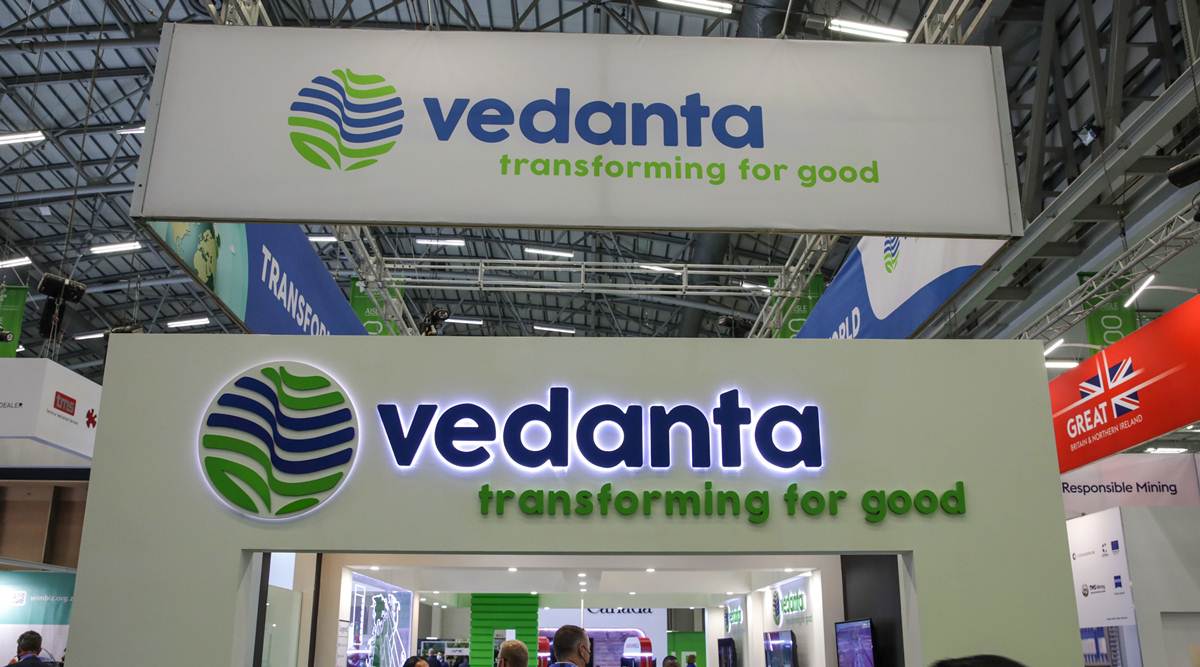Vedanta Is Closing Near On A $2 Billion Fund From Farallon.
Farallon has recently specialised in unusual illiquid circumstances, assisting Indian corporates like Vedanta in resolving balance sheet dislocations.

According to people in the know, US hedge fund Farallon Capital Management is in advanced talks to fund $1.5-$2 billion to cash-strapped mining billionaire Anil Agarwal, overruling discussions with Vedanta group’s traditional foreign lenders or Gulf entities named International Holding Corporation.
Some of the finance, $800-$900 million, is being worked out against corporate guarantees of Vedanta Ltd., Agarwal’s flagship listed Indian natural resources firm, for which RBI permission is pending. According to the sources, the remaining payment would be sent abroad to Agarwal’s promoter businesses.
The funding line and his dividend income will assist the Scarp dealer turned metals billionaire in meeting his urgent refinance requirements and reducing his personal liabilities. The new structured financing agreement, which is still being finalised, is expected to have tenors of 3-5 years. The rates are as high as 15-16% in USD, equal to the $750 million Oaktree loan facility that Agarwal agreed to through a share subscription agreement at 14%.

It was reported that Vedanta is discussing with credit agencies like Farallon Capital, Davidson Kempner, and Ares SSG Capital to fulfil more than $1 billion in impending obligations.
Previously, Agarwal tried to secure $1 billion in funding for THL Zinc Ventures from his relationship banks, which are as follows.
- Standard Chartered Bank.
- JP Morgan.
- Barclays.
- Deutsche Bank.
It is a fully owned subsidiary of India-listed Vedanta Ltd. However, with banks asking aggressive pricing – 300 basis points over the projected rate – those conversations were put on hold for the time being.
Emails made to Fallaron and Vedanta did not elicit an immediate response.
S&P reviewer Mr Neel Gopalakrishnan stated in a credit call with investors last week that conversations with credit funds are progressing.
Farallon, located in San Francisco, has recently specialised in unusual illiquid circumstances, assisting Indian corporates and promoters in resolving balance sheet dislocations. The list includes the following with Vedanta Group.
- Shapoorji Pallonji Group.
- Essar.
- Emami.
- Piramal Enterprises.
- Indiabulls Group.
Vedanta Resources, a former London-listed entity, controls 69.69% of Vedanta Ltd through different Agarwal family members and his promoter establishments.
The list includes the following.
- Twin Star Holdings.
- Volcan Investments.
- Finsider International Ltd. Vedanta Limited.
They, in turn, control several public and unlisted operational companies like Balco, Hindustan Zinc, ElectroSteel Ltd, Facor, and divisions like Cairn India, Sesa Iron Ore, Sterlite Copper, Vedanta Aluminium, and others.
Agarwal’s commitments at his multiple promoter and investment companies have thrown a long shadow over his main listed company in India, Vedanta Limited, a homegrown BHP Billiton with extensive holdings in natural resources like oil and gas, metals like aluminium, zinc, copper, lead-silver, and iron ore. Although his group businesses’ operating performance has seen EBITDA and profit after tax double over the last 8 fiscals, Vedanta Ltd’s shares have dropped 37% in the last year due to concerns about parent Vedanta Resources’ approaching debt commitments.
In a recent bulletin, rating firm S&P Global predicted that Vedanta Ltd had consolidated cash of roughly $2.5 billion till 31.3.2023, down from around $4 billion till 31.3.2022. The group’s net debt is $7.7 billion, with ambitions to reduce it by $4 billion over three years. It has already returned half of the loan in FY23.
According to JP Morgan, Vedanta Resources is “struggling with” $4.1 billion in debt maturities and interest demands at the Holdco level, of which $1.6 billion in interest expenditures and dollar bond maturities; $2.2 billion at the Midco level; and $449 million in intercompany loans to Vedanta Ltd. $1,6 billion is due in 1QFY24, i.e. by June 2024, making it critical for the firm and its promoter to acquire a minimum near-term $1 billion funding.

According to S&P, the firm is close to receiving $1 billion in capital at one of its operating companies. The corporation allegedly considers multiple funding alternatives with banks and investors for at least another $2 billion. If any of these negotiations are successful, it will be easier to pay its $1 billion bond due in January 2024. Failing to present a credible refinancing strategy at least six months before the bond’s maturity date may result in downward rating pressure.
Agarwal has mostly paid off his debt using loans and earnings from operational companies like Vedanta Ltd and Hindustan Zinc Ltd. Vedanta Ltd, for example, is paying $930 million in dividends upstreamed to parent Vedanta Resources in FY23 alone, for a total payment of $4.5 billion (Rs 37,700 crore). Similarly, in the same fiscal year, Agarwal extracted $3.95 billion which is equal to 300% dividend payout from Hindustan Zinc, the group’s cash cow.
HZL’s large payout maybe it’s last, given its vaults are now empty,” said Investec’s Ritesh Shah. A corporation that generates $300 million to $600 million in Ebitda per quarter is set to convert net debt to net cash. Mr Agarwal tried to safeguard his finances further in February by proposing to sell Zinc International (ZI), a Vedanta group firm with mining operations in South Africa and Namibia, to the Hindustan Zinc for USD 3 billion in cash over 18 months.
Conclusion.
Agarwal’s assessment of the seller, Vedanta Ltd, which is 70% owned by Vedanta Resources, was that the lion’s share of the sale profits may be utilised to meet his liquidity requirements. Nevertheless, the government, which owns about 30% of the company, voted against the measure. We believe VRL will have to rely on the HZ-ZI deal, divestments, or undergo protracted pain with high-cost re-fi to receive incremental pay-outs. According to Shah, with most of its equity committed or encumbered, the company’s alternatives are restricted.





